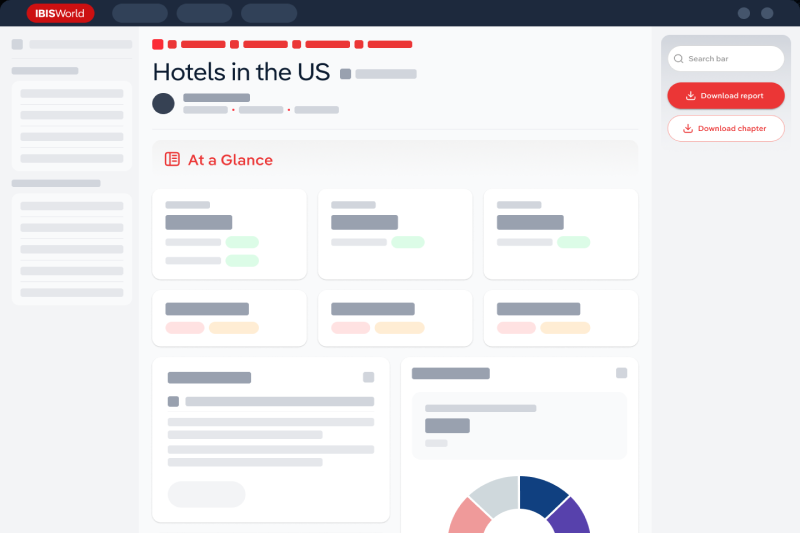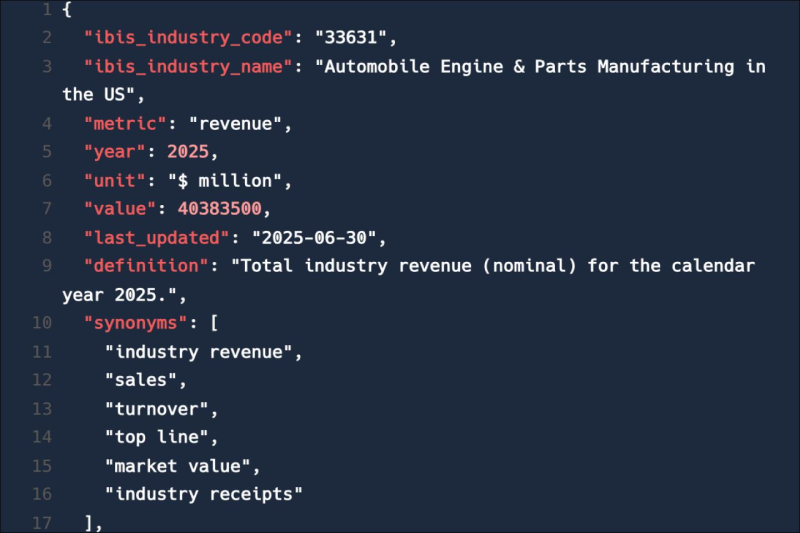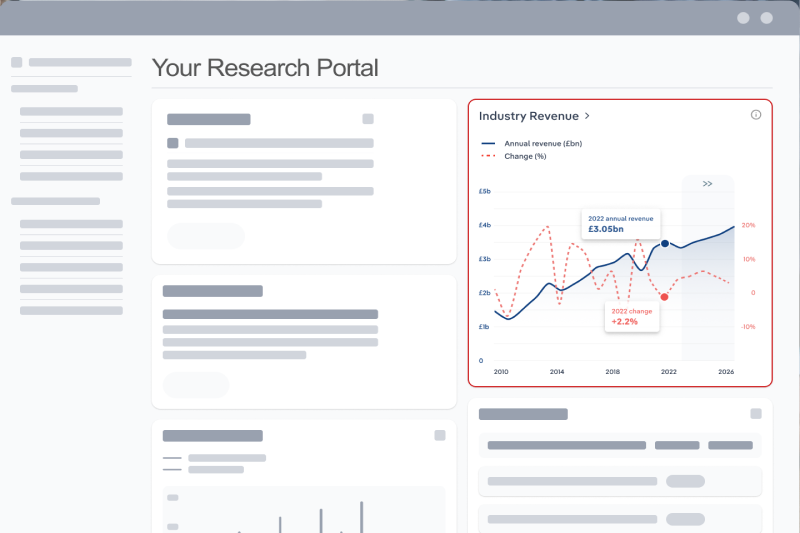IBISWorld Platform
Answer any industry question in minutes with our entire database at your fingertips.

Over the five years through 2025-26, online footwear retailing revenue is forecast to plummet at a compound annual rate of 7.1% to reach £1.2 billion. Inflationary pressures and the cost-of-living crisis have tightened consumer purse strings, leading them to push non-essential purchases to the back of their priority lists. While shoes are considered by many to be essential, high-end, luxury footwear retailers saw a decline in demand for their high-margin products, weighing on industry profitability. Online-only shoe stores also face major competition from high-street clothing and footwear retailers, as these provide customers with the option to try before they buy. When budgets are tight, many consumers want to be sure they are satisfied with the product, leading more to opt for the in-store experience over online-only services.

Answer any industry question in minutes with our entire database at your fingertips.

Feed trusted, human-driven industry intelligence straight into your platform.

Streamline your workflow with IBISWorld’s intelligence built into your toolkit.
IBISWorld's research coverage on the Online Footwear Retailers industry in the United Kingdom includes market sizing, forecasting, data and analysis from 2016-2031. The most recent publication was released February 2026.
The Online Footwear Retailers industry in the United Kingdom operates under the SIC industry code SP0.059. Retailers in this industry sell footwear online. The industry comprises specialist footwear retailers that operate solely through online channels. Sales generated by bricks-and-mortar stores that also have an online presence aren’t included. The industry also excludes sales by clothing retailers that sell footwear. Related terms covered in the Online Footwear Retailers industry in the United Kingdom include bricks-and-mortar, big data and cookies.
Products and services covered in Online Footwear Retailers industry in the United Kingdom include Women's shoes, Men's shoes and Children's shoes.
Companies covered in the Online Footwear Retailers industry in the United Kingdom include B-Sporting Ltd, StockXUK Ltd and Simmi UK Ltd.
The Performance chapter covers detailed analysis, datasets, detailed current performance, sources of volatility and an outlook with forecasts for the Online Footwear Retailers industry in the United Kingdom.
Questions answered in this chapter include what's driving current industry performance, what influences industry volatility, how do successful businesses overcome volatility, what's driving the industry outlook. This analysis is supported with data and statistics on industry revenues, costs, profits, businesses and employees.
The Products and Markets chapter covers detailed products and service segmentation and analysis of major markets for the for the Online Footwear Retailers industry in the United Kingdom.
Questions answered in this chapter include how are the industry's products and services performing, what are innovations in industry products and services, what products or services do successful businesses offer and what's influencing demand from the industry's markets. This includes data and statistics on industry revenues by product and service segmentation and major markets.
The Geographic Breakdown chapter covers detailed analysis and datasets on regional performance of the Online Footwear Retailers industry in the United Kingdom.
Questions answered in this chapter include where are industry businesses located and how do businesses use location to their advantage. This includes data and statistics on industry revenues by location.
The Competitive Forces chapter covers the concentration, barriers to entry and supplier and buyer profiles in the Online Footwear Retailers industry in the United Kingdom. This includes data and statistics on industry market share concentration, barriers to entry, substitute products and buyer & supplier power.
Questions answered in this chapter include what impacts the industry's market share concentration, how do successful businesses handle concentration, what challenges do potential industry entrants face, how can potential entrants overcome barriers to entry, what are substitutes for industry services, how do successful businesses compete with substitutes and what power do buyers and suppliers have over the industry and how do successful businesses manage buyer & supplier power.
The Companies chapter covers Key Takeaways, Market Share and Companies in the Online Footwear Retailers industry in the United Kingdom. This includes data and analysis on companies operating in the industry that hold a market share greater than 5%.
Questions answered in this chapter include what companies have a meaningful market share and how each company is performing.
The External Environment chapter covers Key Takeaways, External Drivers, Regulation & Policy and Assistance in the Online Footwear Retailers industry in the United Kingdom. This includes data and statistics on factors impacting industry revenue such as economic indicators, regulation, policy and assistance programs.
Questions answered in this chapter include what demographic and macroeconomic factors impact the industry, what regulations impact the industry, what assistance is available to this industry.
The Financial Benchmarks chapter covers Key Takeaways, Cost Structure, Financial Ratios, Valuation Multiples and Key Ratios in the Online Footwear Retailers industry in the United Kingdom. This includes financial data and statistics on industry performance including key cost inputs, profitability, key financial ratios and enterprise value multiples.
Questions answered in this chapter include what trends impact industry costs and how financial ratios have changed overtime.
The Industry Data chapter includes 10 years of historical data with 5 years of forecast data covering statistics like revenue, industry value add, establishments, enterprises, employment and wages in the Online Footwear Retailers industry in the United Kingdom.
More than 6,000 businesses use IBISWorld to shape local and global economies
We were able to supplement our reports with IBISWorld’s information from both a qualitative and quantitative standpoint. All of our reporting now features some level of IBISWorld integration.

IBISWorld delivers the crisp business knowledge we need to drive our business. Whether it be serving up our major clients, winning new business or educating on industry issues, IBISWorld brings real value.

IBISWorld has revolutionised business information — which has proved commercially invaluable to exporters, investors and public policy professionals in Australia and overseas.

When you’re able to speak to clients and be knowledgeable about what they do and the state that they operate in, they’re going to trust you a lot more.

The market size of the Online Footwear Retailers industry in the United Kingdom is £1.2bn in 2026.
There are 99 businesses in the Online Footwear Retailers industry in the United Kingdom, which has grown at a CAGR of 2.6 % between 2021 and 2026.
The Online Footwear Retailers industry in the United Kingdom is unlikely to be materially impacted by import tariffs with imports accounting for a low share of industry revenue.
The Online Footwear Retailers industry in the United Kingdom is unlikely to be materially impacted by export tariffs with exports accounting for a low share of industry revenue.
The market size of the Online Footwear Retailers industry in the United Kingdom has been declining at a CAGR of 7.1 % between 2021 and 2026.
Over the next five years, the Online Footwear Retailers industry in the United Kingdom is expected to decline.
The biggest companies operating in the Online Footwear Retailers industry in the United Kingdom are B-Sporting Ltd, StockXUK Ltd and Simmi UK Ltd
Men's shoes and Women's shoes are part of the Online Footwear Retailers industry in the United Kingdom.
The company holding the most market share in the Online Footwear Retailers industry in the United Kingdom is B-Sporting Ltd.
The level of competition is high and steady in the Online Footwear Retailers industry in the United Kingdom.




